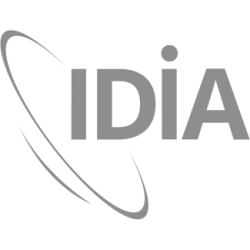By Nicklaus Kruger, UWC Institutional Advancement
South Africa is a country of many languages – but for many of us, “science” isn’t one of them. Astrophysicist and Associate Professor Carolina Ödman has made it her mission to translate and share the joys of science with everyone – and her efforts have earned her the coveted Communication & Outreach Award at the NSTF-32 National Science and Technology Forum awards.
“Science isn’t just a tough school subject that isn’t useful later in life” she says. “Science starts with curiosity and exploration – and we all learn by being curious about the world. Science never ceases to ask questions, and develops methods to build understanding, and solutions to problems. But it can only do so if it is inclusive of everyone. So it is crucial to get science communication right to make sure that the public feels that they can be a part of the adventure of science. Otherwise, how do we ensure the next generation of talented young people are able to seize the opportunities afforded by scientific careers – and change the world?”
Often called the “Science Oscars”, the national NSTF-South32 Awards are the largest science, engineering, technology and innovation awards in South Africa. They were also the first science awards in the country, kicking off in 1998 and honouring over 200 awardees since for their outstanding contributions to science.
“There’s so much excellence in science and technology in this country – and the NSTF awards are proof of that,” she says. “So being able to join that pantheon of South African science – well, that’s just something extremely special. “It means that I have support for my work and for my vision of science communication, and for ensuring the next generation of talented young people are able to seize the opportunities afforded by careers in science.”
As Associate Director: Development & Outreach for the Inter-University Institute for Data Intensive Astronomy (IDIA) – an innovative collaboration that tackles the challenges of Big Data in science – she’s championed outreach that matters, and spearheaded attempts to translate science into more of South Africa’s indigenous languages.
“I see science as a service that needs to benefit the public – and that means sharing the ways of thinking we learn in science, such as problem solving, and doing so in the right language. And for that science needs to go where the people are, not the other way around.”
Her work in pushing science outreach and education has earned her numerous national and international awards – and true to form, she’s managed to use those awards to (what else) communicate science. But the NSTF awards are a special case.
“The NSTF Awards are only given to those who’ve made a truly significant contribution to science and research in South Africa,” says UWC’s Deputy Vice-Chancellor: Research & Innovation, Prof José Frantz. “They’re awarded to researchers who’ve changed the way we understand the world around us, and our own place in it. And few have done that quite as well as Prof Carolina Ödman – who’s sharing not just science, but the joy of science, and inspiring others to perform research that makes a difference. We could not be more proud of her.”
Talking Science: Big Data, Big Impact
Prof Ödman was born in Switzerland, earned her PhD at Cambridge University, and has worked all over the world. As the first international project manager of Universe Awareness, an early childhood development programme that uses the inspirational aspects of astronomy to stimulate children’s development in underprivileged environments, she ran a global network of volunteers managing projects in over 40 countries. But it’s in South Africa that she’s found her home.
South Africa is a country of 11 national languages – but nine of these languages don’t have an advanced scientific vocabulary. That leaves many learners – and their communities – at a distinct disadvantage.
“The biggest challenge in South African science is not the inclusion of minorities: it is the inclusion of the majority,” says Prof Ödman. “According to the 2011 census, 80% of the population is Black, but only 4.4% of Black South Africans have English or Afrikaans – the main languages of science tuition – as their first language. Just imagine what a barrier that represents. And just imagine what we could accomplish if we could unlock the scientific potential of all those minds by helping develop scientific language, and by giving a modern science context to indigenous knowledge?”
At IDIA, she has had the chance to collaborate with – and to help develop – some of South Africa’s top young astronomical talent, creating spaces where science engagement and development practitioners can talk about their work.
“The current climate for science studies – and astronomy in particular – in South Africa is very favourable,” she notes. “I have seen incredible talent in the youth. I’ve seen a hunger for knowledge that can make sense of the world. And I’ve seen a passion for sharing that knowledge with others – because the story of science in South Africa is an adventure worth sharing.”
It also opens the door to great careers that can lead from a lab, to industry, to communities. Africa has no shortage of challenges – but it also has an abundance of young, smart minds keen to tackle those challenges, if we can just channel that untapped talent.
“Facing challenges should not stop young people from dreaming big and having the opportunity to become world leading scientists. Large science projects like MeerKAT (pictured left) and the SKA have knock-on effects on the society in which they take place,” she says.
“They stimulate technological advancement, time and again – from quantum mechanics leading to television, to Einstein’s relativity underlying the global GPS system. But more than that, they stimulate imaginations – they let us think beyond what we know (or think we know), and find solutions to problems we’d never considered before.”
